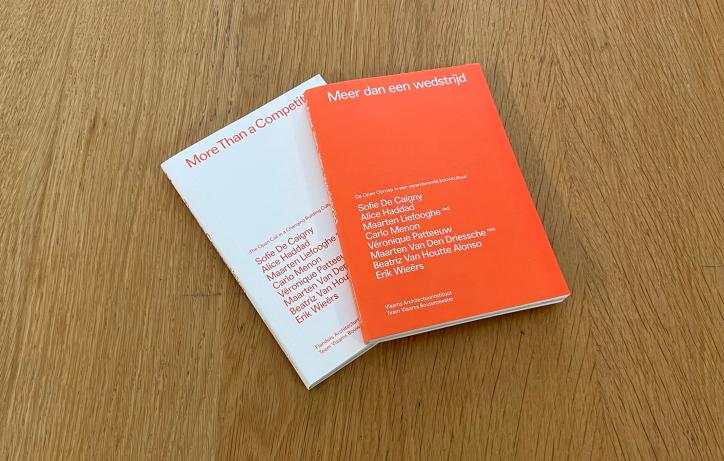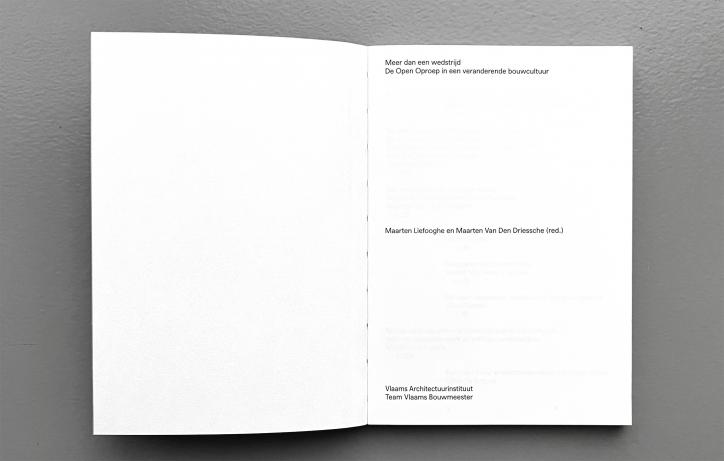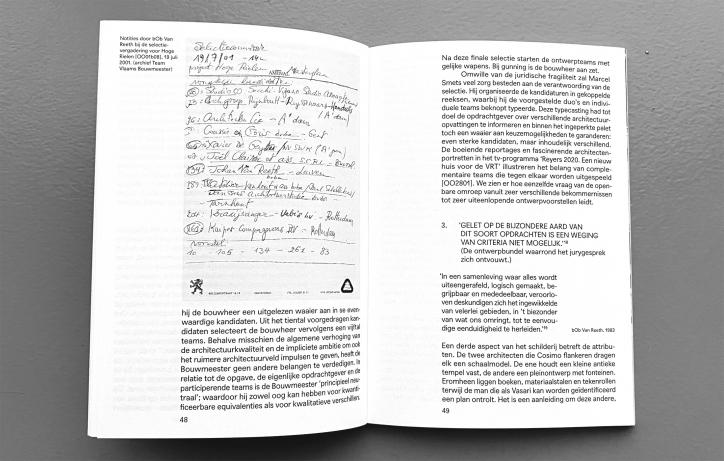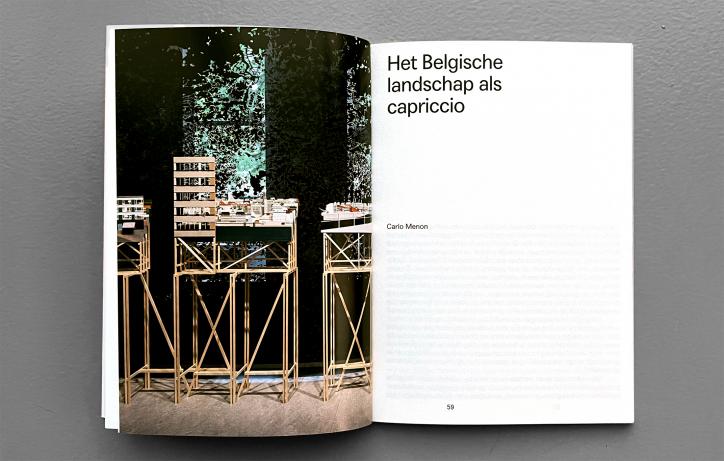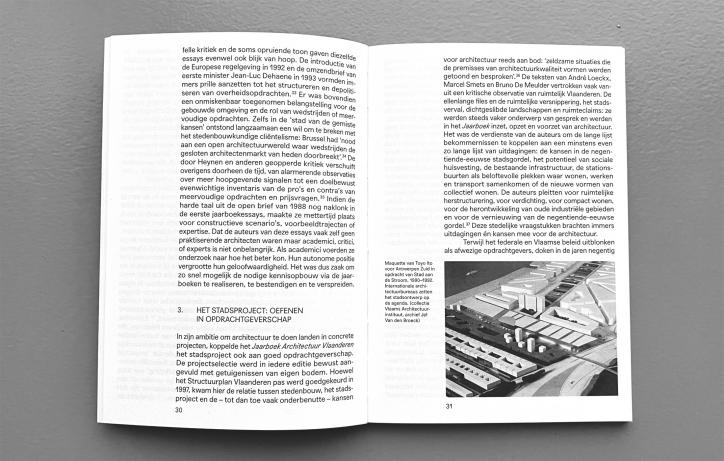Flanders has had a Government Architect since 1999. The Government Architect advises public commissioning authorities with the aim of promoting the quality of architecture and the built environment. One of the methods used for this purpose is the Open Call. In the essays in this book, eight authors discuss, from different perspectives, why this influential ‘competition’ is not quite an architecture competition while at the same time being much more.
Did architectural criticism in the 1990s help to pave the way for the Government Architect position and the Open Call? Does the key to quality lie in smart procedures? What is a ‘strong’ public commissioner in a democratic system? What does the Flemish Government Architect do and what has the Open Call achieved over the past twenty years? What do the distinct projects mean in their broader spatial context? Can architects satisfy a collective desire with singular designs? To what extent is the Open Call in line with the broadening of the practice of architecture and the evolving competition culture? Looking back on two decades of public commissions, this book presents current reflections on these issues.

